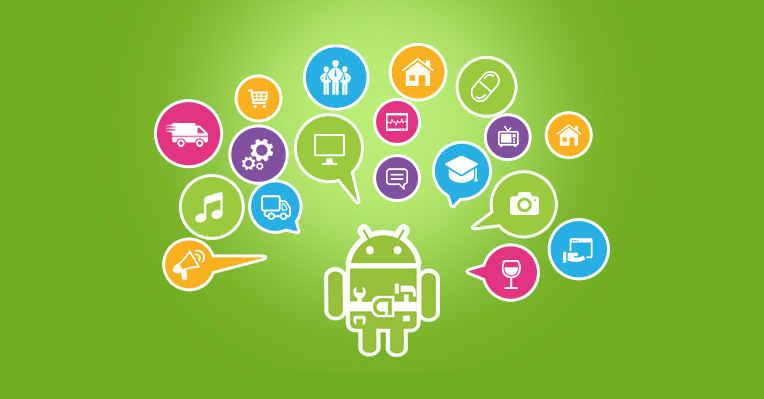An Android app development framework is a software tool that provides a set of pre-written code, libraries, and APIs (Application Programming Interfaces) that developers can use to build Android applications more quickly and efficiently. Frameworks are designed to make app development easier by providing a pre-built foundation of code that can be used to speed up the development process, while still allowing developers to customize and add their own features.
There are different types of mobile app frameworks available, and each has its own pros and cons. Let’s take a quick look at them.
- Native app frameworks: These frameworks are platform-specific and allow developers to create apps for a specific operating system. Native app frameworks are often preferred for their performance and ability to access device features.
- Hybrid app frameworks: These frameworks use web technologies such as HTML, CSS, and JavaScript to create mobile apps that can run on multiple platforms. Hybrid app frameworks allow developers to create apps quickly and easily for multiple platforms.
- Cross-platform app frameworks: These frameworks allow developers to write code once and then deploy it to multiple platforms. They typically use a single codebase to create apps. Cross-platform frameworks can be less expensive and faster to develop than native apps, but may not offer as much control over the platform-specific features. Examples of cross-platform app frameworks include Xamarin and Flutter.
As an Android app development company or developer, it’s essential to stay up-to-date with the latest frameworks and technologies in the field. In this article, we’ll discuss ten must-know frameworks and technologies for Android developers and also how can you select an Android app development framework.
Let’s get started!
10 Must-Know Android App Development Framework
Whether you hire an Android app developer or you build it yourself, these are the most effective Android app development framework you must know if you want your business to run effectively.
Kotlin
Kotlin is a modern programming language that is getting talk-of-the-town among Android developers. It is a concise and expressive language that offers features such as null safety, extension functions, and coroutines.
Android Jetpack
Android Jetpack is a set of libraries, tools, and architectural guidance that helps developers build high-quality Android apps. It provides a set of elements that can be used to create apps with less boilerplate code.
Retrofit
Retrofit is a popular HTTP client library for Android that makes it easy to make network requests. It simplifies the process of sending and receiving network requests by allowing you to define APIs with annotations and automatically converting responses to Java objects.
Room
Room is a powerful persistence library that aids to perform with SQLite databases on Android. It provides an object-mapping abstraction layer that allows you to work with SQLite databases using plain Java objects.
Dagger
Dagger is a “dependency injection framework for Android” that helps manage the dependencies of your app. It makes it easy to provide dependencies to your classes without having to manually create and manage them.
RxJava
RxJava is a library that provides reactive programming capabilities for Android. It allows you to work with asynchronous and event-based programming by providing a set of operators that allow you to transform, combine, and filter streams of data.
Firebase
Firebase is a backend-as-a-service (BaaS) platform that aids you with tools and services to build high-quality apps. It includes services for authentication, cloud storage, real-time databases, and more.
Glide
Glide is an effective image loading library (which is also for Android) that makes it seamless to upload and showcase pictures in your app. It provides a simple and efficient API that allows you to load images from a variety of sources and cache them for better performance.
Material Design
Material Design is a design language. It is developed by none other than Google. Material Design provides a set of rules for designing in Android apps. You can call it a layout guidance app. It includes guidelines for typography, color, and layout, as well as patterns that can be used to create user interfaces.
Android Studio
Android Studio is “the official integrated development environment (IDE) for Android app development”. It provides a set of tools and features that make it easy to create, test, and deploy Android apps. It includes features such as code editing, debugging, and performance analysis tools.
Now that we have acknowledged the most effective Android app development framework, it is time to understand how you can select which one would be the best for you. The framework also tells you what to focus on when you hire an Android App Developer. If you want Android Jetpack, for example, your developer should have experience using the same.
How to Select an Android App Development Framework for Business?
Selecting an Android app development framework for your business can be a critical decision that will impact the success of your mobile app. Here are some factors to consider when selecting Android app development services:
Platform Support
The first factor to consider when selecting an Android app development framework is the platform support. Make sure that the framework you choose supports the platforms that you want to target (Android, iOS, web, etc.). If you plan to develop a cross-platform app, you may want to consider a framework that supports multiple platforms.
Developer Skill Set
Consider the skill set of your development team when selecting a framework. If your developers are more familiar with a particular programming language, you may want to choose a framework that supports that language. For example, if your developers are proficient in JavaScript, you may want to consider a framework like React Native or Ionic. Or you can also hire an Android programmer who is accustomed to the framework you want for your application.
Project Requirements
Consider the custom requirements of your project when selecting a framework. If your app needs personalized features, such as chatbot or machine learning, you may want to consider a framework that provides support for these features.
Scalability
Make sure the framework you choose can scale as your business grows. Consider the scalability of the framework and how it will support your business as you add new features and users.
Cost
Consider the cost of the framework, including licensing fees, development costs, and ongoing maintenance costs. Make sure the cost of the framework is within your budget and provides a good return on investment for your business.
Community Support
Consider the size and activity of the community around the framework. A large and active community can provide support, resources, and updates to the framework that can help your development team be more productive and stay up-to-date with the latest technologies.
Selecting the right Android app development framework for your business requires careful consideration of many factors. By considering the platform support, developer skill set, project requirements, scalability, cost, and community support, you can choose a framework that meets the unique needs of your business and helps you build high-quality mobile apps.
Conclusion
In conclusion, these are some of the must-know frameworks and technologies for Android developers and how you can select the one for your business. While many other technologies and frameworks can be useful for Android development, these are a great starting point for building high-quality Android apps. By using these frameworks and technologies, you can build better apps with less boilerplate code and more efficiency.
Also Visit: Why MEARTH CYBER is the Wave of the Future Of Transportation








